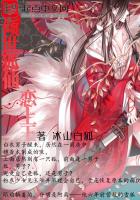“Come, my stout hearts!” quoth he, drawing his sword.
“Let us show these poor heathen that we can handle ourweapons like men of might. Well for them if they put usnot to prove it in earnest!”
The iron-breasted company straightened their line,and each man drew the heavy butt of his matchlock closeto his left foot, thus awaiting the orders of the captain.
But as Endicott glanced right and left along the fronthe discovered a personage at some little distance withwhom it behoved him to hold a parley. It was an elderlygentleman wearing a black cloak and band and a highcrownedhat beneath which was a velvet skull-cap, thewhole being the garb of a Puritan minister. This reverendperson bore a staff which seemed to have been recentlycut in the forest, and his shoes were bemired, as if hehad been travelling on foot through the swamps of thewilderness. His aspect was perfectly that of a pilgrim,heightened also by an apostolic dignity. Just as Endicottperceived him he laid aside his staff and stooped to drinkat a bubbling fountain which gushed into the sunshineabout a score of yards from the corner of the meetinghouse.
But ere the good man drank he turned his faceheavenward in thankfulness, and then, holding backhis gray beard with one hand, he scooped up his simpledraught in the hollow of the other.
“What ho, good Mr. Williams!” shouted Endicott. “Youare welcome back again to our town of peace. How doesour worthy Governor Winthrop? And what news fromBoston?”
“The governor hath his health, worshipful sir,” answeredRoger Williams, now resuming his staff and drawing near.
“And, for the news, here is a letter which, knowing I wasto travel hitherward to-day, His Excellency committed tomy charge. Belike it contains tidings of much import, for aship arrived yesterday from England.”
Mr. Williams, the minister of Salem, and of courseknown to all the spectators, had now reached the spotwhere Endicott was standing under the banner of hiscompany, and put the governor’s epistle into his hand. Thebroad seal was impressed with Winthrop’s coat-of-arms.
Endicott hastily unclosed the letter and began to read,while, as his eye passed down the page, a wrathful changecame over his manly countenance. The blood glowedthrough it till it seemed to be kindling with an internalheat, nor was it unnatural to suppose that his breastplatewould likewise become red hot with the angry fire of thebosom which it covered. Arriving at the conclusion, heshook the letter fiercely in his hand, so that it rustled asloud as the flag above his head.
“Black tidings these, Mr. Williams,” said he; “blackernever came to New England. Doubtless you know theirpurport?”
“Yea, truly,” replied Roger Williams, “for the governorconsulted respecting this matter with my brethren in theministry at Boston, and my opinion was likewise asked.
And His Excellency entreats you by me that the news benot suddenly noised abroad, lest the people be stirred upunto some outbreak, and thereby give the king and thearchbishop a handle against us.”
“The governor is a wise man—a wise man, and a meekand moderate,” said Endicott, setting his teeth grimly.
“Nevertheless, I must do according to my own bestjudgment. There is neither man, woman nor child in NewEngland but has a concern as dear as life in these tidings; andif John Endicott’s voice be loud enough, man, woman andchild shall hear them. Soldiers, wheel into a hollow square.
Ho, good people! Here are news for one and all of you.”
The soldiers closed in around their captain, and he andRoger Williams stood together under the banner of thered cross, while the women and the aged men pressedforward and the mothers held up their children to lookEndicott in the face. A few taps of the drum gave signalfor silence and attention.















